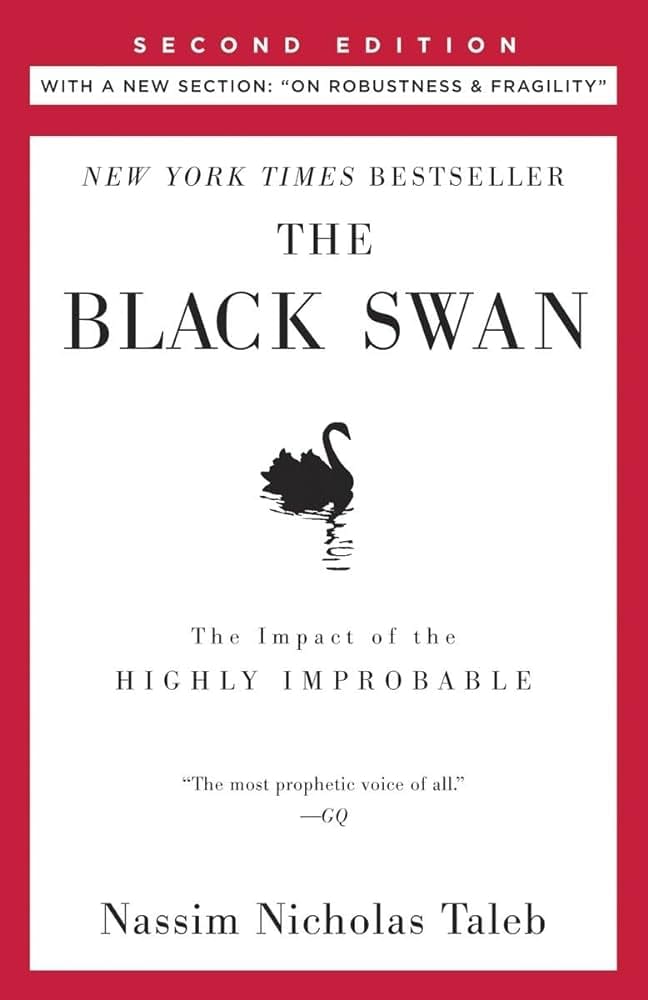Book review: The Black Swan

How many coffee chats?
- Surprisingly, a single coffee chat could be enough to get across the major points. The book revolves around a single central concept the author is trying to convey - empirical understanding is insufficient to accurately depict extreme events that could happen, particularly in fields (e.g., economics) that don't have physical properties. Inequality does not slow down in these extreme circumstances.
- The entire book could probably be covered in 3-4 coffee chats. While the book is dense, the content is somewhat repetitive. Also, the latter chapters (chapters 17 and 18) are mostly used to criticize industry professionals and critics.
You'll benefit from reading this book if...
- You are a student of philosophy or economics, or "epistemology" (history of knowledge)
- You are looking to diversify your framework of thought
- You are an investor
Why you should read anything from this author
- The author claims to be a successful practitioner of is teachings on black swans. Using this concept, he reportedly had large returns during both financial crises in two economic crises ('80s and '07) after a portfolio of investment expose in the extremes to account for black swan events.
- His thinking contradicts human mental heuristics, often ones that don't make a lot of logical sense. If you consider yourself as someone who us self analytical, you may feel "awakened" by his arguments.
- If you're interested in reading other books by this author (e.g., Antifragile), you may benefit from knowing the concepts shared in his earlier book.
Why you'd want to take this with a gain of salt
- He tends to make sweeping statements about existing statistical methods. He claims that statistics cannot be used to model great outliers, using examples like weight distribution (which has a normal distribution) vs wealth distribution (which does not have a normal distribution). However, there are statistical tools that do indeed represent non-normal distribution, such as nonparametric methods, data analysis, visualization tools, or robust estimation. https://www.tandfonline.com/doi/abs/10.1198/000313007X220011